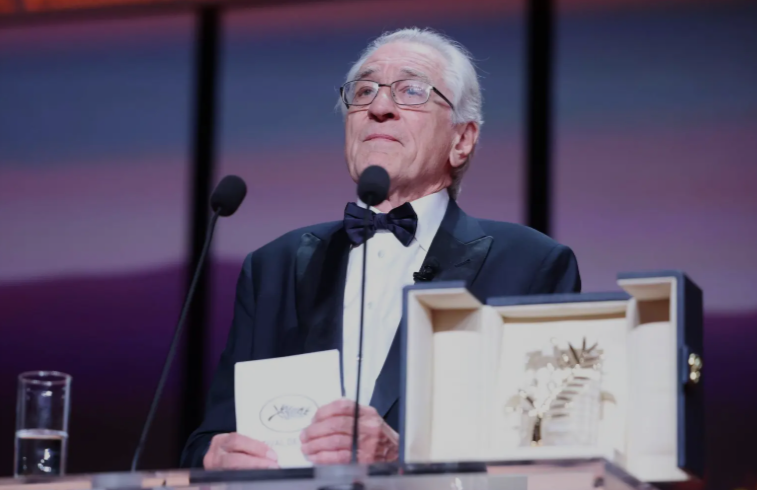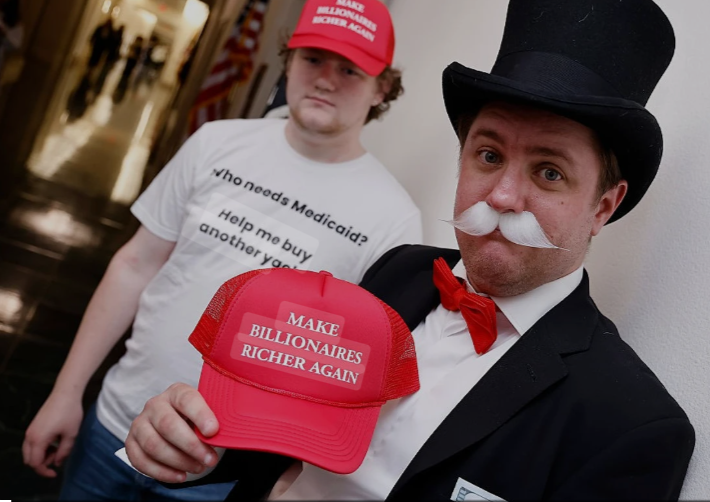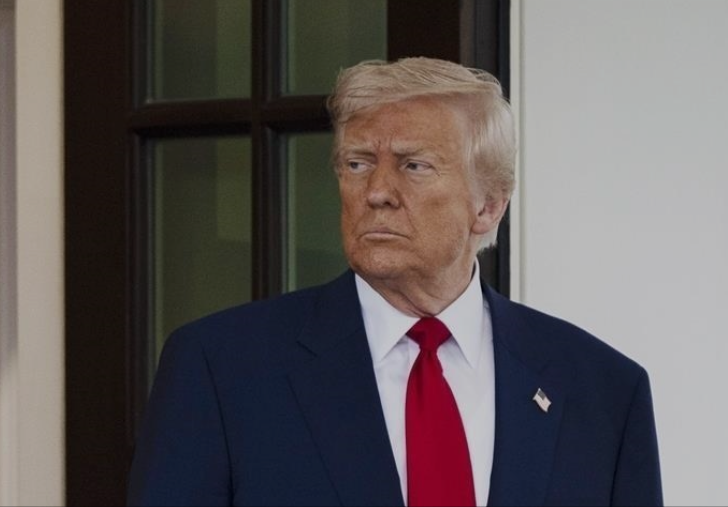In a powerful, globally resonant speech at the opening ceremony of the 78th Cannes Film Festival, acclaimed actor Robert De Niro reignited his outspoken critique of Donald Trump—this time warning the international community that the former president poses a threat not just to the United States, but to democracies and artistic freedom worldwide.
De Niro, a two-time Academy Award winner and longtime Cannes regular, was honored with a special Palme d’Or on opening night. In accepting the award, he delivered an impassioned speech that was as much a defense of artistic liberty as it was a condemnation of Trump’s authoritarian impulses.
“We’re fighting like hell for our democracy”
“In my country,” De Niro began, “we are fighting like hell for the democracy we once took for granted. That affects all of us here, because art is the crucible that brings people together, like tonight. Art seeks truth. Art celebrates diversity. And that’s precisely why art is now under attack.”
The audience in Cannes’ iconic Grand Lumière theatre erupted in applause as De Niro drew a direct line between authoritarianism and cultural suppression.
“That’s why we—artists, creators, truth-seekers—are a threat to autocrats and fascists,” he continued. “America’s philistine president had himself installed as the head of one of our premier cultural institutions, the Kennedy Center, while simultaneously slashing federal support for the arts, the humanities, and public education.”
Tariffs on creativity: Trump’s censorship by policy
De Niro also addressed a shocking announcement made by Trump just days earlier: a proposed 100% tariff on all foreign films entering the U.S. market. The policy has sparked alarm across the global film industry and is widely seen as an effort to censor non-American artistic expression.
“You can’t put a price on creativity,” De Niro said. “But apparently, you can put a tariff on it. This is not only unacceptable—it is a coordinated attack on art, on expression, and on our shared humanity.”
His message was clear: these are not merely political moves, but strategic attempts to silence dissent and reshape public discourse through cultural control.
Call to action: “We have to act, and we have to act now”
In closing, De Niro urged global citizens, artists, and democratic advocates to stand up—not with violence, but with resolve and organization.
“We must act,” he declared. “Not just in America, but everywhere. The threat we face is global. So we must organize. We must protest. And when elections come, we must vote—loudly and decisively.”
He concluded with a rallying cry that echoed the democratic ideals of both France and the United States: “Tonight, and for the next 11 days, we show our strength and our commitment by celebrating art in this glorious festival. Liberté, Égalité, Fraternité.”
Honoring a lifelong cinematic legacy
The Palme d’Or tribute was presented by Leonardo DiCaprio, who has co-starred with De Niro in several major films and called him “a legend, a mentor, and a fighter for truth.” The ceremony opened the festival ahead of the premiere of Partir Un Jour, a French comedy.
De Niro, now 81, has a long-standing relationship with Cannes. He served as jury president in 2011, and several of his iconic films—such as Martin Scorsese’s Mean Streets (1973) and Sergio Leone’s Once Upon a Time in America (1984)—have premiered at the festival.
Cannes 2025: Politics, protest, and artistic urgency
This year’s Cannes Festival has been marked by a renewed focus on real-world issues. On the same day as De Niro’s speech, headlines were dominated by the conviction of French actor Gérard Depardieu on sexual assault charges. Jury president Juliette Binoche commented, “He is no longer sacred,” underscoring a shift in how power and accountability are discussed within the arts.
Meanwhile, behind the glamour, freelance festival workers—including drivers and projectionists—held a second consecutive year of protests, demanding fair unemployment protections and improved labor conditions. The demonstration was backed by the union collective Sous les écrans la dèche.
As De Niro’s remarks made clear, Cannes is no longer just a celebration of cinematic excellence—it is also a battleground for truth, justice, and the future of democratic societies.



